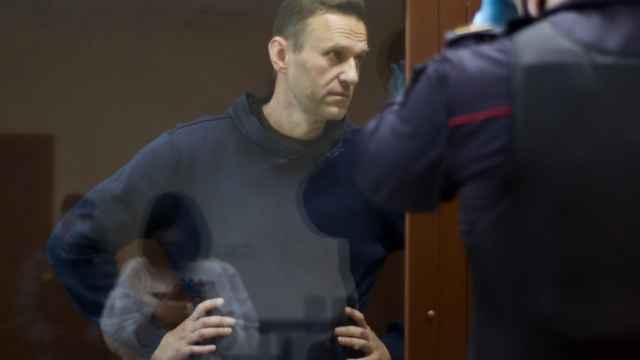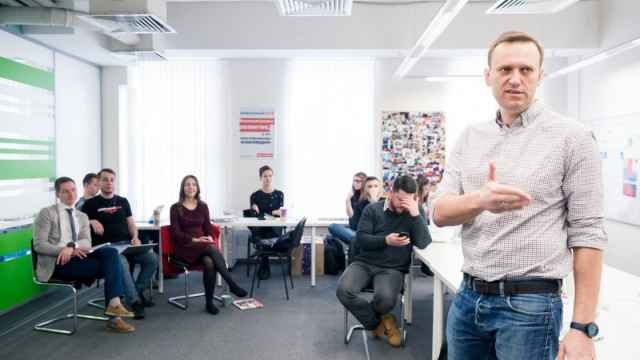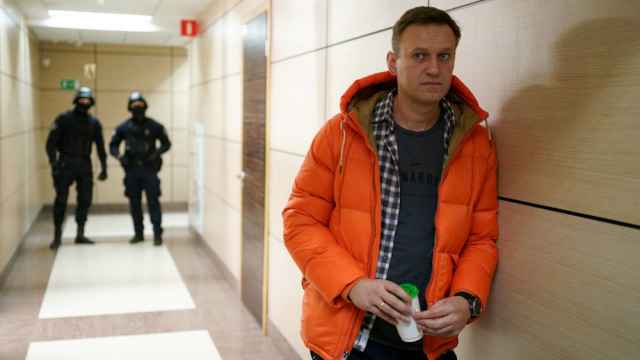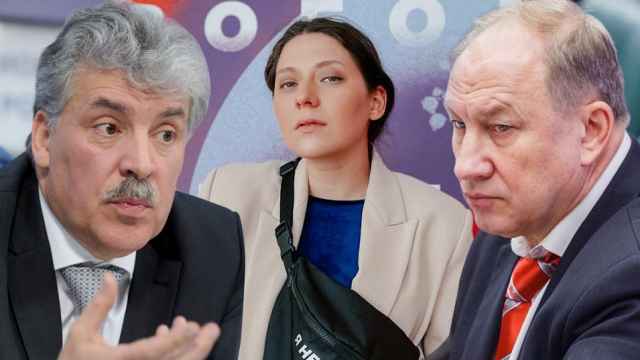Kremlin critic Alexei Navalny said Monday that his prison has lifted his designation as a “flight risk” and placed him on its “terrorist watch list.”
Navalny, 45, is serving a two-and-a-half year sentence on old fraud charges he dismisses as politically motivated after voluntarily returning to Russia this winter. He was swiftly jailed upon returning from recovery abroad from what European scientists say was an August 2020 poisoning with a nerve agent.
The staunch Putin critic is at risk of spending another decade in jail after Russian authorities opened additional criminal cases against him this year.
In his latest social media post from prison, Navalny said “the biggest commission I’ve ever seen” had gathered to recommend removing the “flight risk” label and placing him on its “terrorist watch list” instead.
“The convict Navalny professes extremist and terrorist ideology,” Navalny quoted an unnamed prison rapporteur at Penal Colony No. 2 in the Vladimir region east of Moscow as saying.
“I joined the numerous ranks of Muslims (the ‘extremist’ tag was invented for them, they make up 70% of prison ‘extremists’), nationalists and football fans,” he added.
The Investigative Committee, which probes major crimes, opened a criminal case against Navalny last month on charges of running an “extremist” organization. If found guilty, he could face up to 10 more years in jail.
The organization in question — the Anti-Corruption Foundation (FBK), which disbanded this year ahead of a Moscow court ruling that banned it as “extremist” — had riled Russian authorities with video investigations into the allegedly ill-gotten wealth of the country's ruling elite.
The charges follow another criminal case against Navalny, opened in April, for creating an organization that infringes on the rights of citizens.
In January, FBK’s report into President Vladimir Putin’s alleged $1 billion Black Sea palace sparked mass protests that were followed by a sweeping crackdown on Russia’s opposition.
In his usual upbeat manner, Navalny wrote that he welcomed the status change because it means fewer hourly checks — including at night — to make sure he is accounted for.
“It’s bliss; no one checks on you. I was afraid they’d demand that I kiss Putin’s portraits and recite Medvedev’s sayings, but this hasn't happened yet,” Navalny said.
“It’s just that there’s now a sign hanging over my bunk saying that I’m a terrorist.”
A Message from The Moscow Times:
Dear readers,
We are facing unprecedented challenges. Russia's Prosecutor General's Office has designated The Moscow Times as an "undesirable" organization, criminalizing our work and putting our staff at risk of prosecution. This follows our earlier unjust labeling as a "foreign agent."
These actions are direct attempts to silence independent journalism in Russia. The authorities claim our work "discredits the decisions of the Russian leadership." We see things differently: we strive to provide accurate, unbiased reporting on Russia.
We, the journalists of The Moscow Times, refuse to be silenced. But to continue our work, we need your help.
Your support, no matter how small, makes a world of difference. If you can, please support us monthly starting from just $2. It's quick to set up, and every contribution makes a significant impact.
By supporting The Moscow Times, you're defending open, independent journalism in the face of repression. Thank you for standing with us.
Remind me later.






